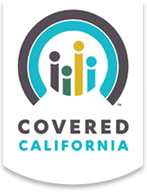Health Savings Account (HSA) FAQs
How does an HSA work?
An HSA works in conjunction with high deductible health insurance. Your HSA money can be used to help pay the health insurance deductible and qualified medical expenses not covered by the health insurance, including dental and vision. Your HSA account earns tax-free interest and, in some plans, can be used for different types of investments such as mutual funds or money market accounts. Your HSA is administered by a trustee/custodian.
What are the deductible and out-of-pocket expense limits for HDHPs in 2010?
The minimum deductible is $1,200 for self-only and $2,400 for families; for out-of-pocket expenses, the maximum is $5,950 for self-only and $11,900 for families. A family is two or more people.
What is the difference between an aggregate deductible and an embedded deductible?
Most HSA plans have what is referred to as an aggregate deductible, which means there is one large family deductible that must be met before anyone in the family is covered. (I.E. If a family deductible is $3,000, there must be $3,000 in claims paid out of the client's pocket before any family member is covered.)
An embedded deductible has a family deductible, however, "embedded" within it is an individual deductible. Usually, the individual deductible is half or one-third of the family deductible. Embedded deductibles are what people are generally used to when they have a traditional PPO health plan.
What expenses qualify for reimbursement from my HSA?
Most expenses for medical, dental and vision care will be reimbursed under your HSA with some exceptions such as cosmetic surgery and health club dues. A list of reimbursable expenses is available on the IRS Web site, www.irs.gov.
Does making HSA contributions through my company save me money in other ways?
If your employer offers a Section 125 plan (also known as a "cafeteria plan") that allows you to contribute to your HSA account through payroll deductions, you will avoid paying the employee share of the federal FICA tax on the amount you contribute. You also will reduce your tax liability and payments.
What are the tax-deductible contribution limits?
For 2010, federal law limits annual contributions to $3,050 for self-only and $6,150 for families. Catch-up contributions are $1000 for individuals 55 & over until Medicare enrolled. Prior to 2007, annual contribution maximum was limited to the lesser of the HDHP deductible or the statutory contributory amount.
How do HSAs differ from Flexible Spending Accounts?
Unlike a Flexible Spending Account, unused money in your HSA isn't forfeited at the end of the year; it continues to grow, tax-deferred. HSA contributions are always yours to keep.
Can my HSA be used for dependents not covered by the health insurance?
Generally speaking, it can be used to pay for the unreimbursed medical expenses of your spouse or dependents. A Health Savings Account (HSA) can be used to pay for "qualified medical care expenses" of The insured, His or her spouse, or Dependent children.
Can I use my Health Savings Account for nonmedical expenses?
Yes, but you have to pay income tax and a 10% penalty for a nonmedical withdrawal prior to age 65. At age 65, you only pay income tax on the amount of the nonmedical withdrawal.
Can I make a Rollover from an IRA into an HSA?
The Tax Relief and Health Care Act of 2006 (HR 6111) was designed to improve Health Savings Accounts (HSAs). These changes are significant and could make it more attractive for plan sponsors to offer HSAs, and more attractive to plan members to choose them. One of the provisions included in HR 6111 permits a one-time tax-free irrevocable rollover from an IRA into an HSA. The amount of the rollover cannot exceed the annual HSA contribution limit (which varies depending on whether a person has self-only or family HDHP coverage).
Important Note: Failure to maintain eligibility for the HSA contributions for a period of 12 months following the IRA transfer would result in income tax and a 10% penalty on the transfer.
Once I turn 65, what happens to the money in a Health Savings Account?
Once you hit 65, the amounts can be used for health expenses and to pay certain insurance premiums like Medicare Part A & B, Medicare HMO and the employee's share of retiree medical insurance premiums. It cannot be used to purchase a Medigap policy. It can also be used for medical expenses Medicare does not cover. If used for medical expenses, the amounts come out of the account tax-free. If used for other expenses, the amount received will be taxable at ordinary income tax rates.
Are health insurance premiums eligible under my HSA?
Generally, health insurance premiums are NOT "Qualifying Medical Care Expenses" except for the following:
- Qualified long-term care insurance
- COBRA health care continuation coverage
- Health care coverage while an individual is receiving unemployment compensation
- In addition, for individuals over age 65, premiums for Medicare A or B, Medicare HMO, and the employee share of the premium for employer-sponsored health insurance.
- Premiums for Medigap policies or Life insurance policies are NOT qualified medical expenses.


